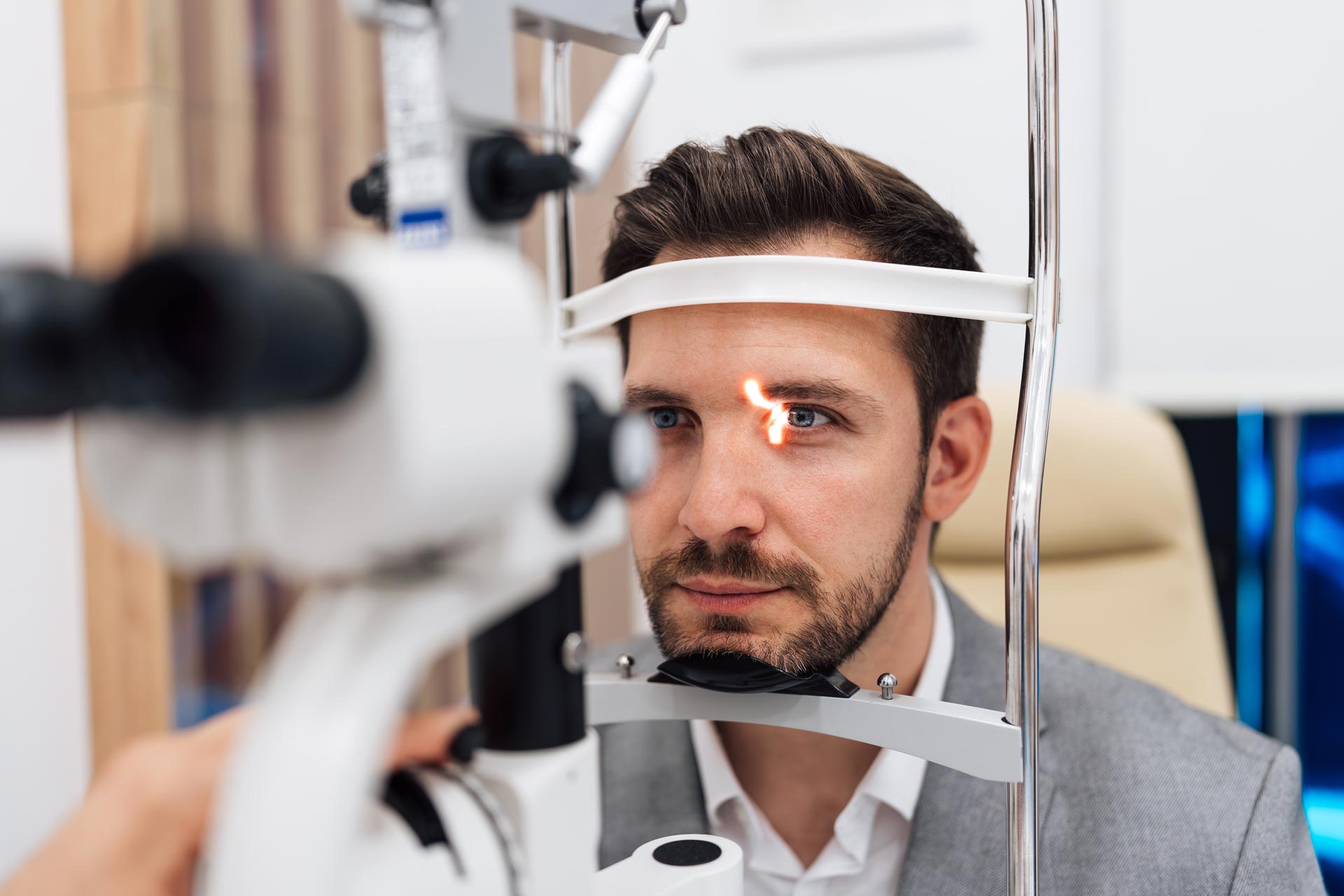Laser vision correction – side effects

The laser vision correction procedure is considered very safe. For certain sports, professional requirements and difficulties with adaptation to traditional correction, it is often the only alternative to improve visual acuity. With the proper and meticulous qualification of patients before the procedure, the risk of complications is minimal, but, as with any medical procedure, some side effects may occur. Fortunately, most of them are temporary and can be treated effectively. Find out what side effects can occur after laser vision correction and how to manage them.
What does laser vision correction involve?
Laser vision correction is a surgical procedure that aims to permanently improve visual acuity by modelling the cornea with a laser. There are several methods of laser vision correction, including Relex Smile, Presbyond, Femtolasik, EBK or PRK, which differ in the technique, but all are used to eliminate problems such as:
- myopia,
- hyperopia,
- astigmatism,
- presbyopia.
The whole process is painless and usually takes several minutes, and most patients notice an improvement in their vision just a few hours after the procedure.
Side effects of laser vision correction – how common are they?
Side effects after laser vision correction procedure are relatively rare and serious complications are occasional. It is estimated that only about 1-5% of patients experience temporary problems such as dry eyes or photosensitivity. More serious complications, which may require further intervention, are even rarer and affect less than 1% of those undergoing the procedure. With advanced technology and professional qualification for the procedure, the vast majority of patients undergo it without any complications, enjoying long-lasting improvements in vision.
Laser vision correction procedure – what complications can occur?
Although laser vision correction is one of the safest ophthalmic procedures, it can result in some complications. Most of them are temporary and do not threaten long-term eye health. Proper pre- and postoperative care and the experience of the surgeon significantly reduce the risk of complications. What complications can occur?
The most common complications or side effects after the procedure are:
- dry eyes – it happens and largely depends on the procedure method used. In most cases, this problem can be effectively controlled with moisturising eye drops;
- temporary changes in night vision – some patients may experience temporary deterioration of night vision, which manifests as blurred vision, glare or halos around light sources. Their occurrence depends on the width of the pupils and the visual defect undergoing the procedure;
- temporary discomfort – immediately after the procedure, patients may experience slight discomfort, itching, a gritty sensation under the eyelids or watery eyes. These symptoms are usually short-lived and resolve spontaneously within a few hours to 2-3 days after the procedure.
Very rare complications after the procedure include:
- infections – although extremely rare, may occur after a laser vision correction procedure. In some immunocompromised patients, latent infectious conditions may be triggered. However, they are usually related to poor hygiene or non-compliance with post-operative instructions;
- cornealscarring – in very rare cases, corneal scarring or permanent corneal opacity may occur. This phenomenon is usually the result of abnormal tissue healing after superficial procedures, but treatment protocols developed over the years effectively prevent this.
- problems with proper tissue healing – in some patients the healing process can be non-standard. In rare cases, this may require additional treatment or correction.
It is worth remembering that the vast majority of patients undergo the procedure without any complications and the vision defect is effectively corrected.
Proper recovery – how to reduce the risk of complications after the procedure
To minimise the risk of complications after laser vision correction, it is essential to follow the doctor’s instructions. Here are the most important of them:
- avoid touching your eyes,
- wear sunglasses,
- do not use eye makeup,
- do not go to the swimming pool.
Follow-up medical consultations and avoiding strenuous physical exertion in the weeks following the procedure also help the eyes to heal properly and reduce the risk of complications.
Is it possible to suffer complete and irreversible loss of vision due to complications following a laser vision correction procedure?
The risk of vision loss or deterioration as a result of laser correction procedure is statistically significantly lower than when wearing contact lenses. The laser light used for correction does not penetrate deeper parts of the eye and cannot damage them. Modern technologies and the experience of surgeons mean that the risk of serious complications is virtually non-existent. Most complications or side effects, if any, are temporary and can be effectively treated. Laser vision correction is considered one of the safest ophthalmic procedures and is well worth undergoing to improve your vision and quality of life.
Laser vision correction is a modern method of improving vision, which in the vast majority of cases goes without complications. With proper preparation and eye care after the procedure, the risk of complications is minimal and patients can enjoy clear vision without the need for correction.


